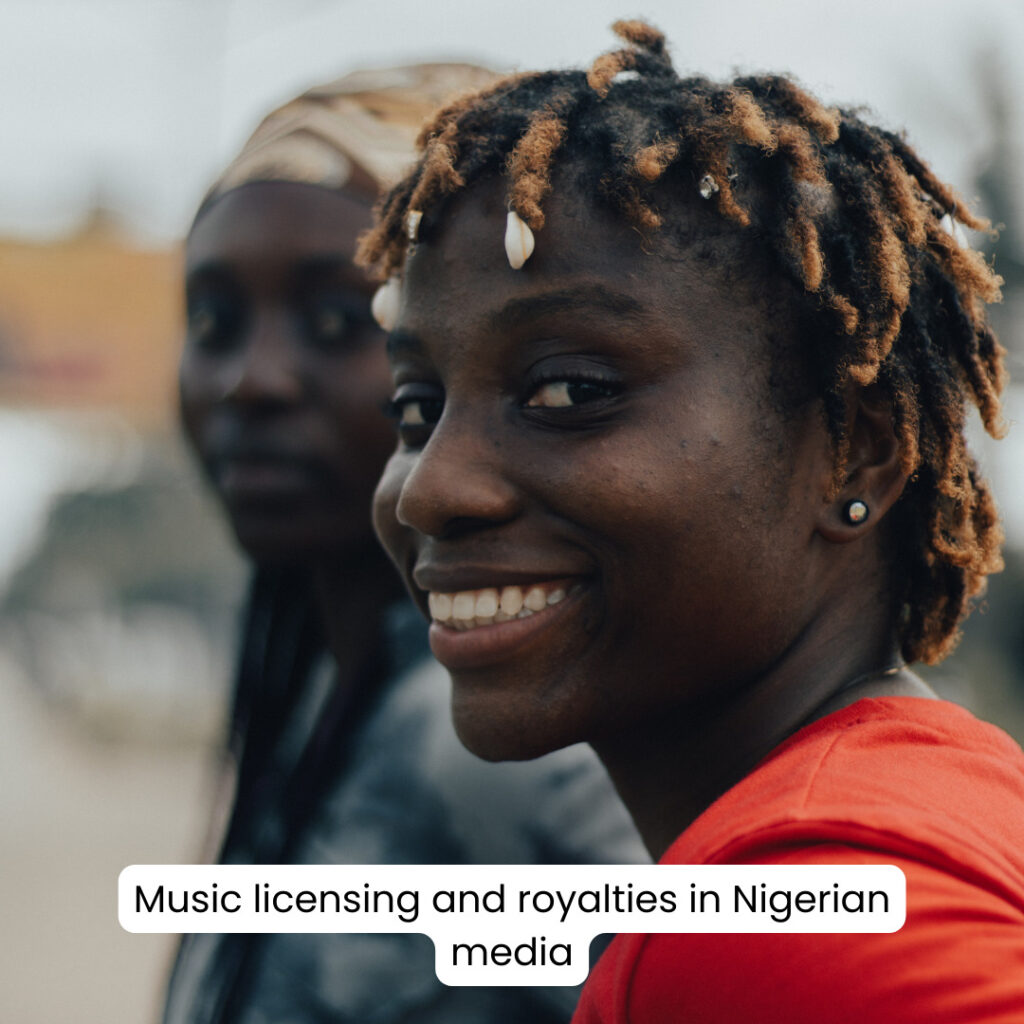Music Licensing and Royalties in Nigeria
Music is a universal language that resonates with people across cultures and borders, and Nigeria, with its rich musical heritage, stands as a vibrant hub of musical creativity. In the modern era, music plays a central role in various forms of media, from films and television shows to advertisements and digital content. As music becomes an integral part of Nigerian media, the intricacies of music licensing and royalties come into play, shaping the relationship between artists, content creators, and the media industry. In this article, we delve into the world of music licensing and royalties in Nigerian media, exploring their significance, key considerations, challenges, and implications for both creators and the media landscape.
The Role of Music Licensing
Music licensing involves granting permission to use a copyrighted musical composition in various media productions. It ensures that artists are compensated for their creative work while enabling content creators to enhance their projects with captivating soundtracks. In Nigerian media, music licensing provides a bridge between artistic expression and commercial viability, contributing to the overall quality and impact of content.
Significance of Royalties
Royalties are the financial compensation paid to music creators and copyright holders for the use of their music in various media productions. These royalties serve as a crucial source of income for artists, songwriters, and music publishers, supporting their livelihoods and fostering a sustainable creative ecosystem.
Key Considerations in Nigerian Media
Music licensing and royalties in Nigerian media involve several important considerations:
- Cultural Identity: Nigeria’s diverse musical heritage is a valuable asset in media content. Incorporating local music can enrich storytelling and connect with audiences on a deeper level.
- Rights Clearance: Securing the necessary rights and licenses for music usage is essential to avoid copyright infringement and legal disputes.
- Fair Compensation: Ensuring that music creators receive fair compensation for their work encourages artistic innovation and contributes to a thriving music industry.
- Digital Platforms: The rise of digital platforms and online streaming introduces new challenges and opportunities for music licensing and royalty distribution.

Challenges and Opportunities
Music licensing and royalties in Nigerian media come with their own set of challenges and opportunities:
- Piracy: Online piracy and unauthorized use of music pose a significant challenge, undermining the income and rights of music creators.
- Licensing Complexity: Navigating the intricacies of licensing agreements, especially for international music, can be complex and time-consuming.
- Royalty Collection and Distribution: Ensuring accurate collection and fair distribution of royalties to all stakeholders require efficient systems and transparent processes.
- Digital Monetization: Digital platforms offer new avenues for music distribution, but ensuring that artists receive their due share of digital royalties is an ongoing challenge.
Future of Music Licensing in Nigerian Media
The future of music licensing and royalties in Nigerian media holds potential:
- Collaborative Platforms: Developing collaborative platforms that streamline licensing processes and facilitate direct communication between creators and media producers can benefit both parties.
- Education and Awareness: Raising awareness among artists and media professionals about music licensing, royalties, and copyright protection can foster a culture of respect for intellectual property rights.
- Digital Rights Management: Implementing effective digital rights management systems can help track and manage music usage across various digital platforms.
- Policy and Regulation: Clear and updated policies and regulations related to music licensing and royalties can provide a favorable environment for both creators and media industries.
Conclusion
Music licensing and royalties form a vital nexus between artistic expression and commercial viability in Nigerian media. By recognizing the value of music, ensuring fair compensation, and embracing innovative solutions to address challenges, Nigeria’s media landscape can create a harmonious ecosystem where music creators, content producers, and audiences benefit mutually. As technology continues to reshape media consumption patterns, a balanced approach to music licensing and royalties will contribute to a vibrant and sustainable creative sector, enriching the cultural fabric of Nigeria and amplifying the impact of its media productions.
